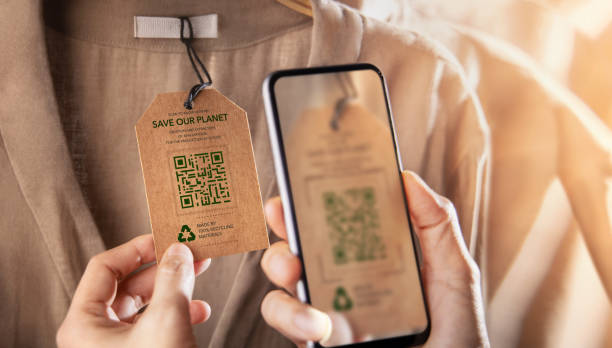Increasingly, eco-awareness has given birth to a zero-waste mindset as a model of sustainable living. We can significantly mitigate environmental degradation and foster a healthier planet by redefining our approach to consumption and waste management.
What is a Zero-Waste Mindset?
To truly understand zero-waste, we must change how we think about resources and waste. The philosophy involves minimizing waste generation by reducing, reusing, and recycling. By its very nature, the zero-waste mindset seeks to emulate natural cycles, where every resource is utilized efficiently without causing harm to the environment.
Adopting a sustainable mindset is essential. For generations to come, it transcends individual actions and contributes to the preservation of ecosystems. Individuals who adopt this mindset become proactive stewards of the environment and ensure conscious consumerism, resulting in tangible benefits globally.
What is Conscious Consumerism?
The concept of conscious consumerism refers to the act of buying and using products with mindful living in mind. Our ultimate goal is to consume less while ensuring that we consume sustainably.
In addition to being long-lasting, sustainable products are made from renewable and recyclable materials. The items range from metal drinking straws to organic cotton clothing and bamboo toilet paper.
The Rise of Conscious Consumerism
Despite its origins in the 1970s, conscious consumerism is now a popular trend among shoppers today. Among US consumers, Fair Trade Certified products are increasingly in demand – a label that signifies a high standard of sustainability.
According to a 2012 survey, only 38% of the population knew what this label meant. This figure climbed to 66% by 2021.
As consumer awareness grows, more sustainable and equitable products are being demanded: 86% of consumers want products that are more sustainable and equitable after a large-scale pandemic. As compared to 2022, 61% of UK adults have reduced their purchases of new goods and products. The number of people who have repaired or fixed items over the past year has also increased to 55%.
The Environmental Impact of Waste
Ecosystems around the world face grave consequences as a result of waste accumulation. Delicate ecological balances are disrupted by landfills leaching harmful chemicals into soil and water. Specifically, plastic waste impacts wildlife, causing marine creatures to ingest microplastics and land animals to become entangled in the debris.
The continuous production of waste and its disposal also contribute to climate change. Waste management processes and landfill methane emissions contribute to greenhouse gas concentrations, exacerbating global warming.
Benefits of Adopting a Zero-Waste Mindset
Embracing a zero-waste mindset has numerous environmental and personal benefits. By reducing landfill waste, we can reduce pollution and alleviate pressure on landfills. Resources are conserved judiciously, ensuring that future generations will have the ability to use them wisely.
Zero-waste lifestyles also reduce carbon footprints. Individuals can reduce their environmental impact by reducing consumption and waste.
Embracing a zero-waste mindset reduces consumption and waste, resulting in cost savings. In addition, it promotes healthy lifestyle choices, such as buying organic and locally sourced products.
As a result of living sustainably, one feels fulfilled and purposeful knowing that their actions contribute positively to environmental conservation and global sustainability.
10 Ways to Be a More Conscious Consumer

As a conscious consumer, you make informed choices that reflect your values, ethics, and sustainability, thus ensuring you have a zero-waste mindset. Here are 10 practical ways to become a more conscious consumer and contribute positively to the world.
1. Research Brands and Products
It is important to research products and brands before making a purchase. Choose companies whose supply chains prioritize sustainability, ethical practices, and transparency. Ensure fair labor practices, eco-friendly materials, and efforts to reduce environmental impact are taken into account.
2. Choose Quality Over Quantity
Choose durable, long-lasting products instead of cheap, disposable ones. Buying well-made goods reduces waste and also saves you money in the long run since you won’t have to replace them as often.
3. Embrace Minimalism
Focus on essentials and declutter your space to practice minimalism. By simplifying your possessions, you reduce consumption as well as promote a more mindful lifestyle. Before you buy an item, ask yourself if it adds value to your life.
4. Reduce Single-Use Plastics
Water bottles, shopping bags, and containers can be used to reduce single-use plastics. Consider items packaged in recyclable materials or those with minimal packaging.
5. Support Local and Sustainable Businesses
Support local businesses and artisans who adhere to ethical and sustainable practices. Supporting the local economy and reducing carbon emissions from transportation are two benefits of buying locally.
6. Practice Mindful Eating
Whenever possible, choose organic, locally grown produce. By planning meals, composting scraps, and supporting sustainable food initiatives, you can reduce food waste.
7. Reduce Energy Consumption
Use energy-efficient appliances, turn off lights when not in use, and line-dry clothes instead of using the dryer at home. Carbon emissions can be reduced significantly by small changes in energy consumption.
8. Recycle and Upcycle
Minimize landfill waste by recycling paper, glass, plastics, and electronics properly. Consider upcycling items instead of discarding them and giving them a new life.
9. Educate Yourself and Others
Understand how consumerism affects the environment and society. Encourage collective action towards conscious consumerism by sharing your knowledge with friends and family.
10. Practice Gratitude
Instead of constantly seeking more, appreciate and value what you already have. Gratitude promotes contentment and reduces excessive consumption, resulting in a healthier, more fulfilling lifestyle.
Zero-Waste Mindset: Overcoming Challenges and Obstacles
Despite societal norms and convenience, adopting a zero-waste mindset can be challenging. Education and awareness about sustainable living are essential to addressing skepticism and resistance. In addition to providing encouragement and practical tips for navigating challenges, zero-waste groups and online forums can provide support and resources.
Implementing zero-waste practices requires effective time and resource management. Plan meals to minimize food waste, repurpose items instead of throwing them out, and prioritize quality when budgeting.
Educating and Inspiring Others on Zero-Waste Mindset
A zero-waste mindset can be demonstrated through success stories and testimonials. Those who show how their actions contribute to preserving the environment and the greater community can inspire others. The advocacy of policy changes and corporate responsibility leads to systemic shifts towards sustainable practices.
To inspire others to join the zero-waste movement, education and awareness must be promoted. A culture of sustainability is fostered through community outreach and events. Advocacy efforts are amplified and collective action towards a greener future is encouraged by collaborating with like-minded organizations and influencers.
What is the Impact of my Small Contribution?
You wonder, though, if the effort of one individual is worth it. Influencers and bloggers have wondered if their sustainable lifestyles have the desired effects. It’s easy to do it small – use cotton bags, buy handmade soap, and shampoo bars, remove plastic straws, and use bamboo toothbrushes.
Our everyday actions contribute towards a world where we are ‘ecologically aware’, ‘socially aware’, and ‘value-aware’. A better way of living can also be achieved by taking bigger steps, such as choosing public transportation, carpooling, not eating red meat, etc. Is it going to make a difference if I’m just one of millions? There is no doubt about it; it does work. An individual’s effort can make a big difference in collective action, just as one drop makes a mighty ocean.
It will take decades for these small steps to become a reality, but they will make a big difference. Bringing significant changes to climate change, pollution, and environmental preservation requires systematic changes; efforts must be focused on things that will deliver real change.
Instead of simply migrating our social guilt for polluting the environment through different small activities, we should direct our energy towards supporting climate change-related candidates and parties, supporting volunteer river cleanup organizations, and opposing businesses that engage in unethical practices.
Conclusion
Embracing a zero-waste mindset is not just about individual actions; it’s about inspiring a global shift towards responsible consumption and environmental stewardship. Mindful living affects industries, policies, and societal norms far beyond personal benefits.
Taking small steps towards a greener future can lead to significant progress. Individuals who inspire others to join the zero-waste movement ensure a sustainable planet beyond borders and generations.







